Thyroid Health & Nutrition
Part I of this article on healing thyroid disorders covered the basics of thyroid health and thyroid disorders. It explained why autoimmune dysfunction is often a root cause of thyroid disorders. And, it discussed how thyroid disorders can be prevented, and why nutrition, lifestyle and stress have such an impact on thyroid health. Part II will dig deeper into nutrition. We will introduce four key micronutrients (vitamins and minerals) for thyroid health, and how to include them in your diet.
Thyroid Health & Micronutrients: Optimal Balance
In addition to the important role of healthy carbohydrate intake for preventing insulin resistance and thyroid disorders, discussed in Part I, micronutrients (vitamins and minerals) are also vital to maintaining thyroid health. The top four key micronutrients for thyroid health are iodine, selenium, zinc and Vitamin D. Too much or too little of these key nutrients can destabilize thyroid, or cause other health problems. Keeping an optimal balance is essential.
Iodine
Iodine is an especially important nutrient, but its relationship with thyroid health is complicated.
In past centuries, iodine deficiency was more common than today. Lack of iodine caused goiters, an enlargement of the thyroid gland, and resulted in hypothyroid symptoms (difficulty concentrating, difficulty sleeping, dry skin and hair, depression, joint and muscle pain, heavy periods and sensitivity to cold).
Nowadays, iodine deficiency is rare in Western countries, in part because most salt is iodized. Most people actually consume far more iodine than they need, although intake is difficult to measure because so many processed foods are salted. If iodine deficiency is suspected, it can be detected with a urine test.
Exposure to certain pesticides can interfere with the absorption of iodine, as can an overload of goitrogenic foods. These foods include cruciferous vegetables like kale, cauliflower and broccoli. These cruciferous vegetables have other important health benefits, and it is important to continue eating them. Steaming or cooking will break down the chemical that interferes with iodine absorption. It is also easy to increase your intake of iodine without using iodized salt. Consuming sea vegetables and other natural sources of iodine is recommended.
On the other hand, too much iodine can worsen thyroid disorders, especially in someone who already has an autoimmune thyroid disorder, Hashimoto’s thyroiditis. Some research suggests that excessive intake of iodine and iodized salt in processed foods can be a trigger for Hashimoto’s thyroiditis.
Selenium
After iodine, selenium is the next most important mineral for thyroid function. Selenium deficiency is common. When selenium levels are tested in people with thyroid disorders, they are frequently found to be below normal levels. Selenium plays a role in the conversion of T4 to active T3, so selenium deficiency can cause hypothyroid symptoms even when the thyroid itself is still healthy.
Iodine and selenium interact with each other in thyroid hormone production. For this reason, it is important to maintain optimal levels of both. Like iodine, excessive selenium can also make thyroid problems worse.
Brazil nuts are very high in selenium, but consume them in moderation! The selenium content can be so high that frequent consumption may cause an excess. Tuna, mackerel, eggs and mushrooms are also excellent sources of selenium and contain a moderate amount.
Zinc
Zinc contributes to the conversion of T4 to T3, and is also needed for TSH production. Moreover, this vital trace mineral acts as a catalyst in many other metabolic pathways. Zinc deficiency is very common, estimated at about 17% world wide. Good sources of zinc include oysters, red meats and pumpkin seeds.
Vitamin D
Vitamin D deficiency is associated not only with autoimmune disorders generally, but also specifically with autoimmune thyroid disorders. It is also a factor in insulin resistance and blood sugar regulation. The benefits of Vitamin D are widespread. It impacts sleep, moods, immune health and bone formation, among other things. Even if you are getting enough Vitamin D, some of the conditions associated with thyroid disorder – leaky gut, inflammation, stress – may prevent your body from fully utilizing Vitamin D.
Vitamin D deficiency is very common, especially in Portland, Oregon and the Pacific Northwest, a climate with many overcast days. The body manufactures its own Vitamin D through exposure to sunlight, and spending time outdoors is still the way to keep up your levels of this vital nutrient. Other great sources of naturally-occurring Vitamin D are cod liver oil, other fatty fish, oysters and beef liver.
While you may wish to supplement with Vitamin D, be aware that it is possible to overdose on Vitamin D. Excessive Vitamin D supplementation can cause toxicity. Start by getting Vitamin D from outdoor exercise, sun exposure and food, then supplement slowly. Having your Vitamin D levels tested before supplementing is recommended.



